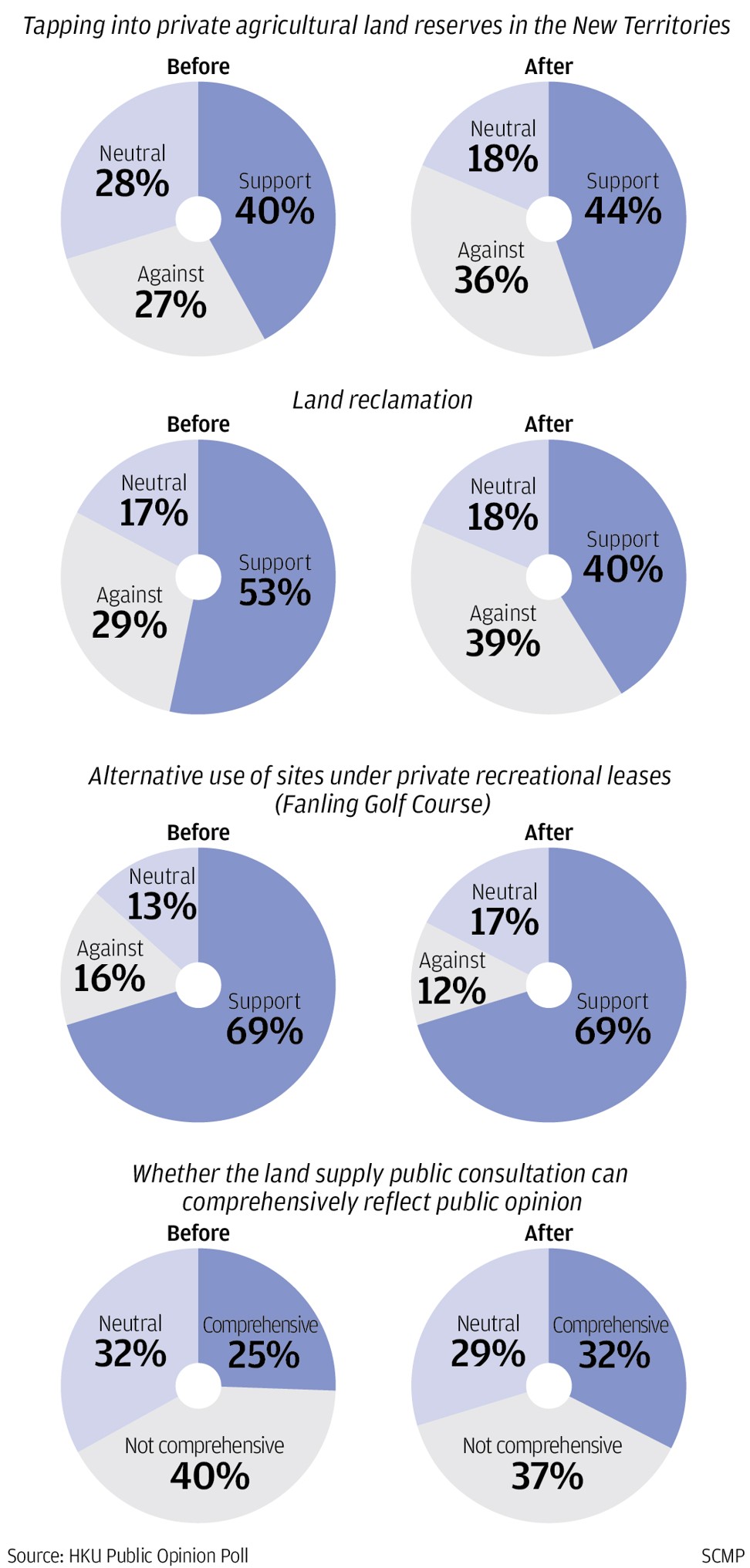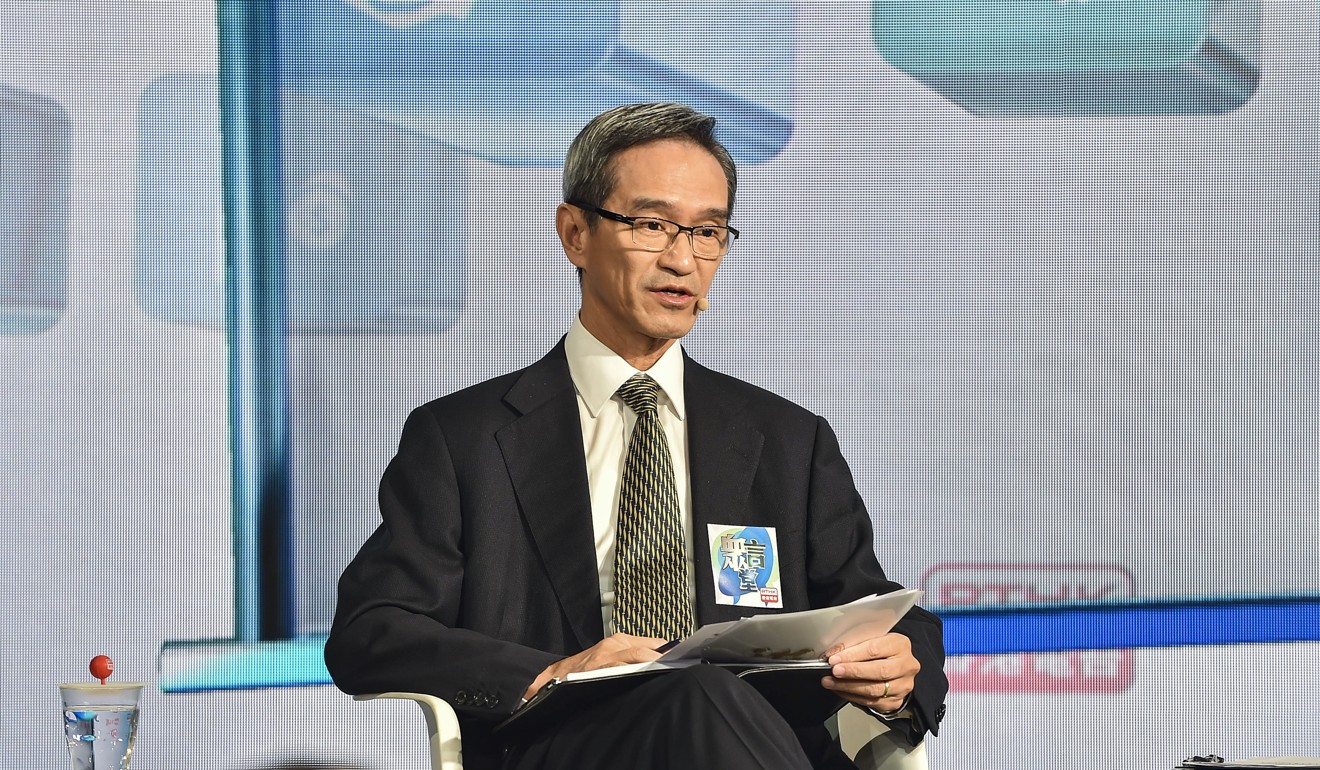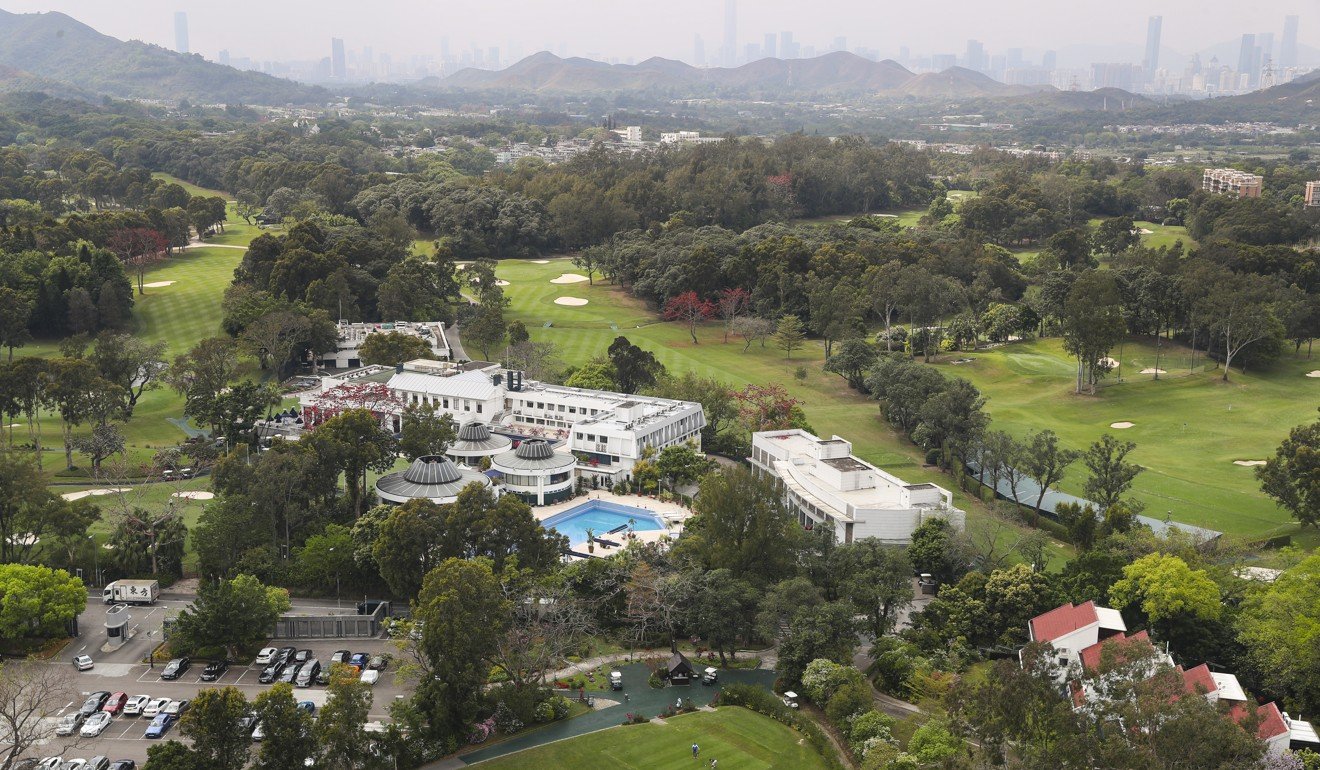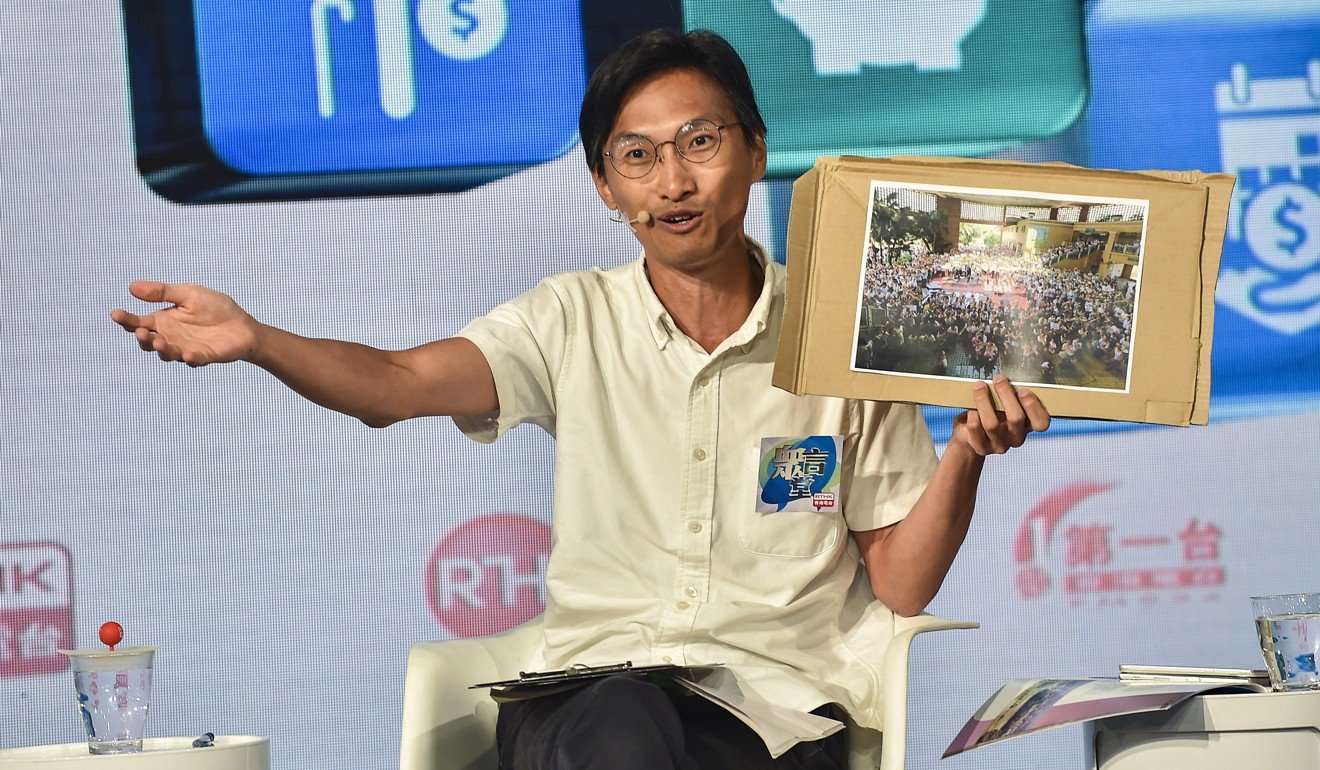
Latest Hong Kong land supply debate highlights changing views on reclamation
Event drawing 119 randomly selected attendees included polling that showed shift after debate from slight support for controversial option to nearly even split

Retiree Benny Yu was initially on the fence about going forward with land reclamation to solve Hong Kong’s housing crisis, but listening to a debate on Saturday changed his mind and made him a strong supporter of the initiative.
“The fish and turtles in the sea can just move elsewhere. We humans, we don’t have a choice to move anywhere else,” Yu, 61, told the Post.
“If I had to choose between humans or fish, of course humans are more important. Not having a place to live can easily cause instability in society.”
Yu was among 119 randomly selected people attending a debate organised by government broadcaster RTHK on Saturday on the best ways for the city to increase its land supply for the next 30 years.
Before and after the debate, the University of Hong Kong’s public opinion programme used a “deliberative polling” method to survey some 114 people on whether they were in favour of three different land supply options.
The method is meant to determine if the survey’s participants had any changes in stance or attitude towards key public issues before and after the poll once more informed about a topic.
Yu’s change in stance, however, actually went against the survey’s findings.
Prior to the debate, 53 per cent supported reclamation, while 29 per cent were against it. Some 17 per cent were neutral.
However, after the survey, support for reclamation dropped to 40 per cent, while opposition to it rose to 39 per cent.
Edward Tai Chit-fai, a senior data analyst at HKU’s public opinion programme, said the results showed a “significant change”.
“If you look at the support and opposition rate, more than half were in support of reclamation before, but after the debate the two sides were almost even,” Tai said.
The survey did not ask participants why they changed their views, he added, but the discussion on the issue was an important factor in the change.
Yu said one major reason for his reversal was he felt reclamation would be a “lesser evil” that had the least amount of opposition compared to other methods.
“Although reclamation takes a long time, I feel other methods such as taking back the golf course or a public private partnership between the government and developers have a higher chance of running into more legal problems like judicial reviews, which can drag on for a long time,” the retiree explained.
Six panel speakers were invited to the event: Task Force on Land Supply chairman Stanley Wong Yuen-fai; pro-democracy lawmaker Eddie Chu Hoi-dick; Centaline real estate agency founder Shih Wing-ching; WWF-Hong Kong conservation manager for oceans Samantha Lee Mei-wah; Liberal Party lawmaker Felix Chung Kwok-pan; and Labour Party chairman Steven Kwok Wing-kin.

The speakers deliberated on three land supply issues: land reclamation; tapping into private agricultural land reserve in the New Territories; and using sites under private recreational leases, such as the Fanling Golf Course. The three issues are some of the most controversial among the 18 in total put forward in a public consultation ending in September. A land shortage of 1,200 hectares in Hong Kong needs to be plugged.
Lee said reclamation had already caused irreversible damage to Hong Kong’s marine life, forcing dolphins to disappear from their natural habitat around northeast Lantau Island since 2012, when work on the Hong Kong-Zhuhai-Macau bridge started.
“Are our natural resources and marine life really worth sacrificing when we have other alternatives such as developing damaged brownfield sites?” she asked.
But Shih argued no other options would provide as much land as reclamation if Hongkongers wanted to have bigger living spaces.
“The average Hongkonger only has 170 sq ft of living space,” the businessman said. “If we want to double that, we need at least another 77,000 hectares of land.”

As for working with private developers to turn their farmland into land for housing, Chu urged the companies to come clean with the exact locations of the 1,000 hectares so that the public would be able to make more informed decisions.

“Otherwise it’s just like an arranged marriage where the public has no concrete picture and will only be able to rely on a government-proposed mechanism that clearly favours developers to help them earn money,” the lawmaker said.
Wong, of the task force, believed not all 1,000 hectares of farmland would be suitable and that the mechanism would be “fair, open and transparent”.
The discussion on Fanling Golf Course centred on whether it was fair for an exclusive community of golfers to enjoy such a large expanse of land, and whether losing a historic venue for competition would hurt Hong Kong’s reputation as an international city.